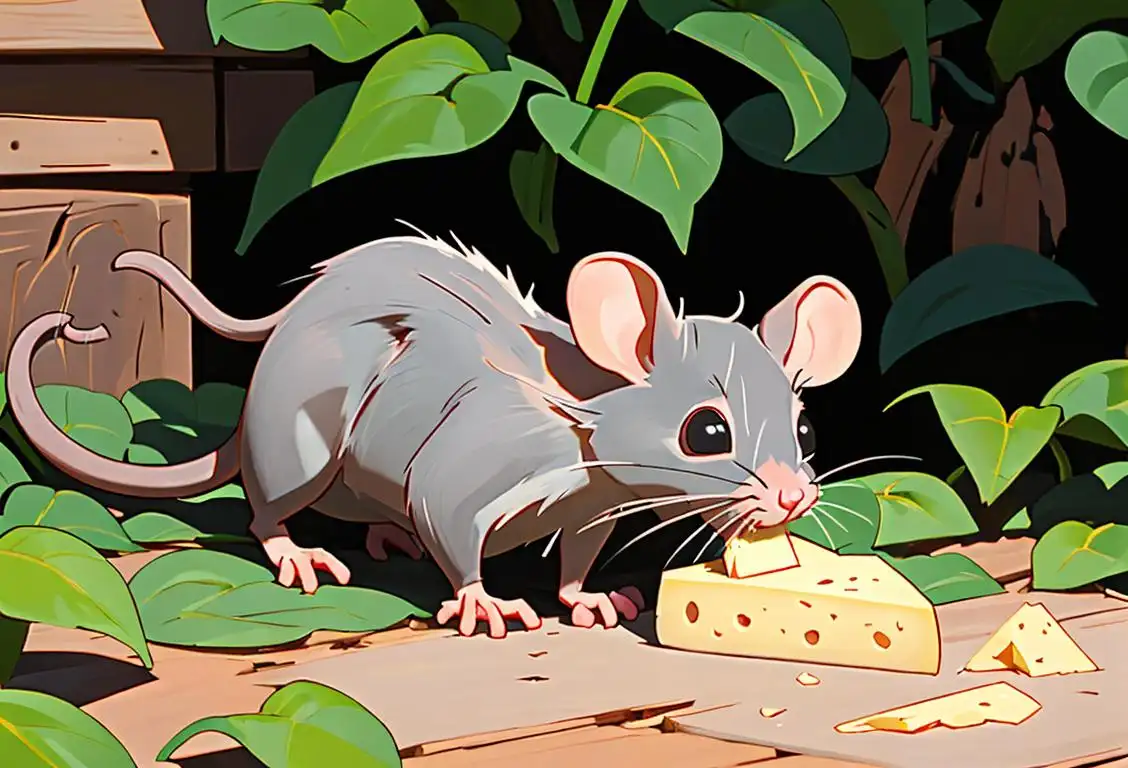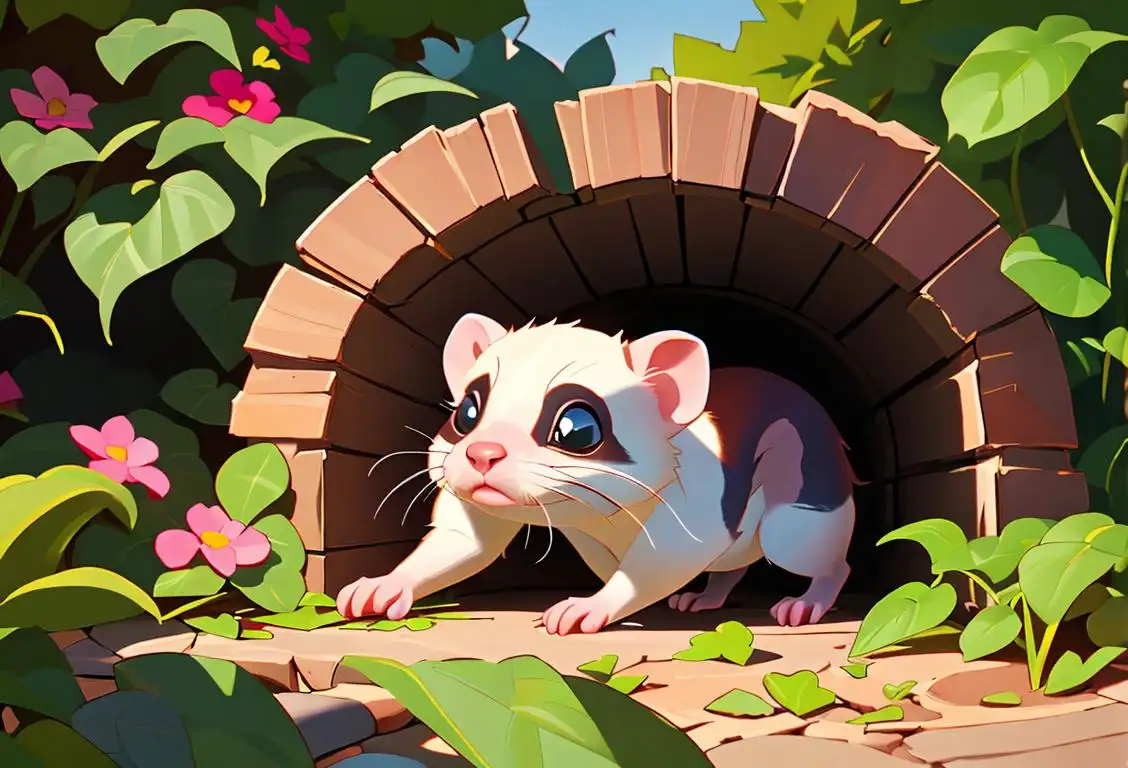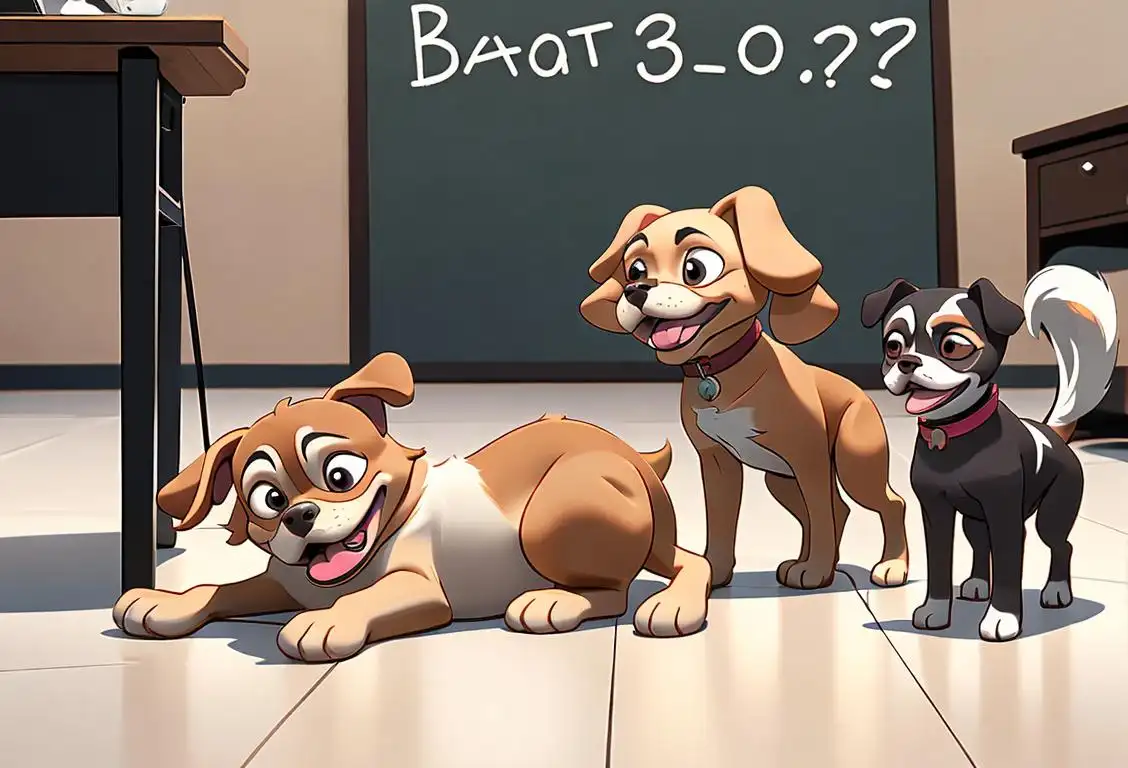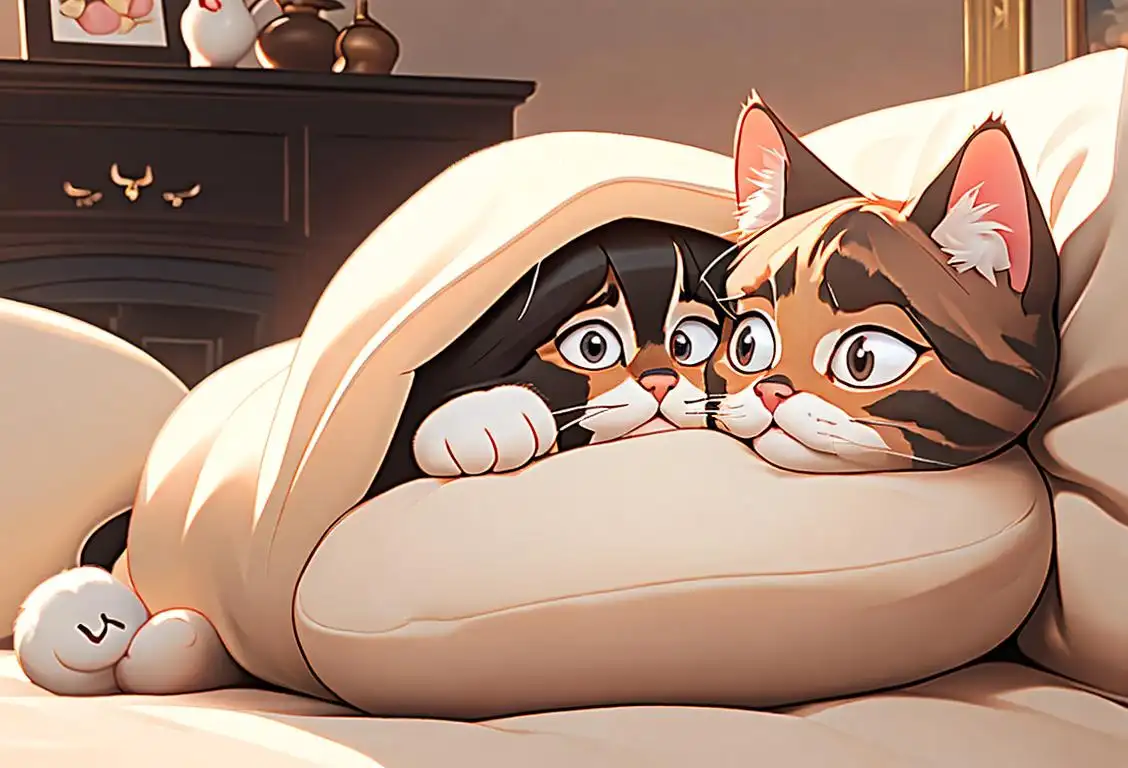National Rat Day

OK, who here really thought there would be a National Rat Day? Well, guess what, we live in a world full of surprises and it appears that rodents get their share of recognition too! Grab a comfy corner, maybe a cheese snack or two because it’s going to be a fun, ratty ride!
When is Rat Day?
It's national rat day on the 21st March.
History of National Rat Day
There isn't a clear history about when and why National Rat Day began but it has become an internet sensation, recognized by pet owners worldwide who appreciate these intelligent, clean and highly sociable pets, contrary to their sometimes maligned reputation. This day aims to show the softer, cuddlier side of the often-misunderstood fella.
The Pinnacle of Popularity
Did you know that some of the greatest fame National Rat Day has enjoyed online was on the 21st of March, 2020? It found itself basking in the insatiable limelight of over 7191 mentions! Quite a red carpet moment for our little furry friends. The worldwide rat fanatics, pet owners, and curious-minded individuals took to the internet to share their amusing rat stories, rescue tales, trivia, and most importantly, adorable rat pictures.
Celebrating National Rat Day
How does one celebrate a day dedicated to these whisker-twirling creatures, you wonder? It isn't complicated. On this day, rat enthusiasts share their love for this intelligent creature, promote positive stories about pet rats, debunk myths, and perhaps, encourage others to adopt a rat as a pet. Educational programs about pet rats and shows featuring performing rats are also popular events. Some pet rat owners prepare a special feast (tiny little rat-friendly cakes, anyone?), buy new toys, or simply spend quality time with their pet.
History behind the term 'Rat'
Middle English Period (11th - 15th centuries)
The Term 'Rat' Emerges
The term 'rat' was first used in Middle English to refer to the rodent species, which belongs to the family Muridae. This term was derived from the Old English word 'ræt', which has Indo-European roots. During this time, rats were known to be common pests and often associated with filth and disease.
18th Century
Figurative Use of 'Rat' Begins
In the 18th century, the term 'rat' started being used figuratively to describe a person who is cunning, treacherous, or untrustworthy. This usage likely stems from the association of rats with sneaky and secretive behavior. The figurative use of 'rat' became popular in various literary works, demonstrating its cultural impact and the evolution of the term.
19th Century
'Rat' in Political Context
During the 19th century, the term 'rat' gained a prominent place in political discourse. It was used to describe a person who abandons or betrays their political party or principles. The increase in political division and party loyalty led to this metaphorical usage, representing those who were seen as traitors within the political arena. This usage of 'rat' in politics has persisted throughout history.
20th Century
'Rat' in Criminal Slang
In the 20th century, 'rat' became a popular term in criminal slang, particularly in the realm of organized crime. Being a 'rat' referred to someone who provided information to the authorities, usually as an informant or a snitch. This usage emphasized the negative connotations associated with the term, highlighting betrayal and disloyalty within criminal organizations.
Modern Usage
Varied Meanings and Pop Cultural References
In modern usage, the term 'rat' encompasses multiple meanings and cultural references. It is still used to describe the rodent species, but also carries figurative connotations such as deceitfulness, betrayal, or being untrustworthy. The term has found its way into popular culture through literature, movies, and music, further solidifying its place in the English language.
Did you know?
Did you know that rats laugh when they're tickled? Yes, you read that right! Humans are not the only ones who enjoy a good tickle. Scientists have found out that rats laugh in ultrasonic calls, beyond human hearing range, when tickled. So, next time you're playing with a pet rat, remember, you might just be cracking them up!Tagged
awareness fun pets animal loversFirst identified
4th April 2015Most mentioned on
21st March 2020Total mentions
7191Other days
Rat Day
Pet Day
Chinchilla Day
Dress Up Your Pet Day
Ferret Day
Love Your Pet Day
Take Your Dog To Work Day
Hug Your Cat Day
Pets Day
Feral Cat Day








